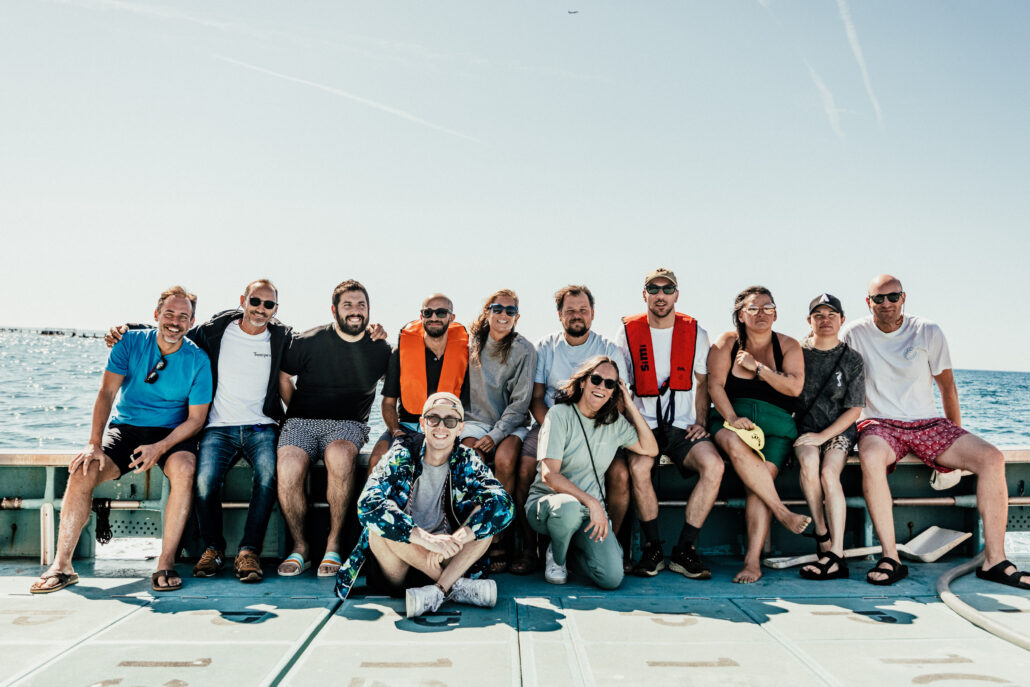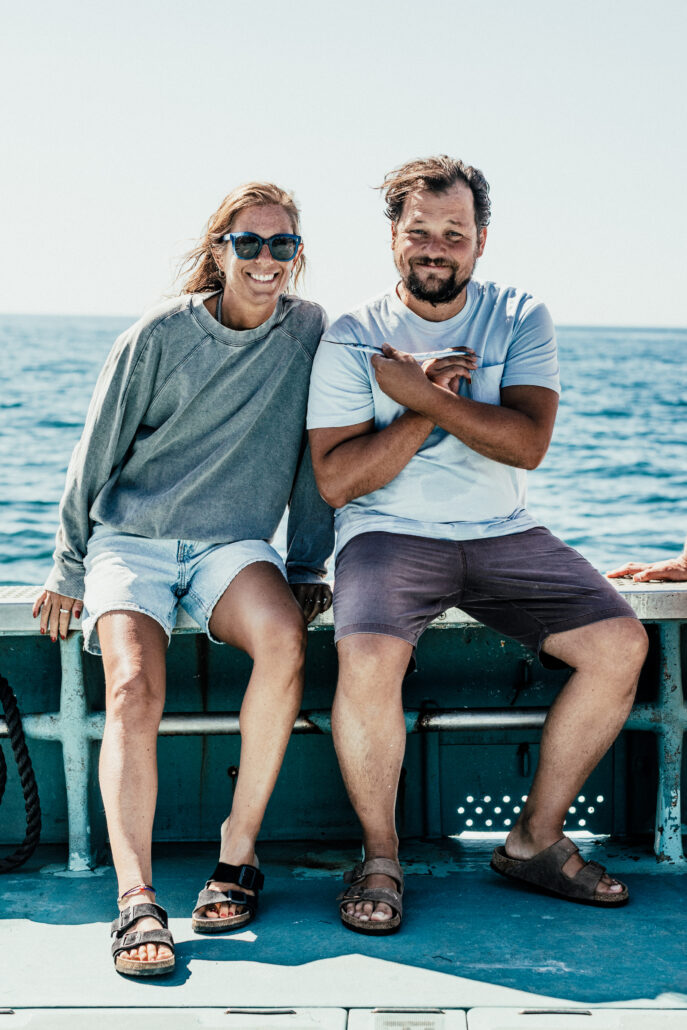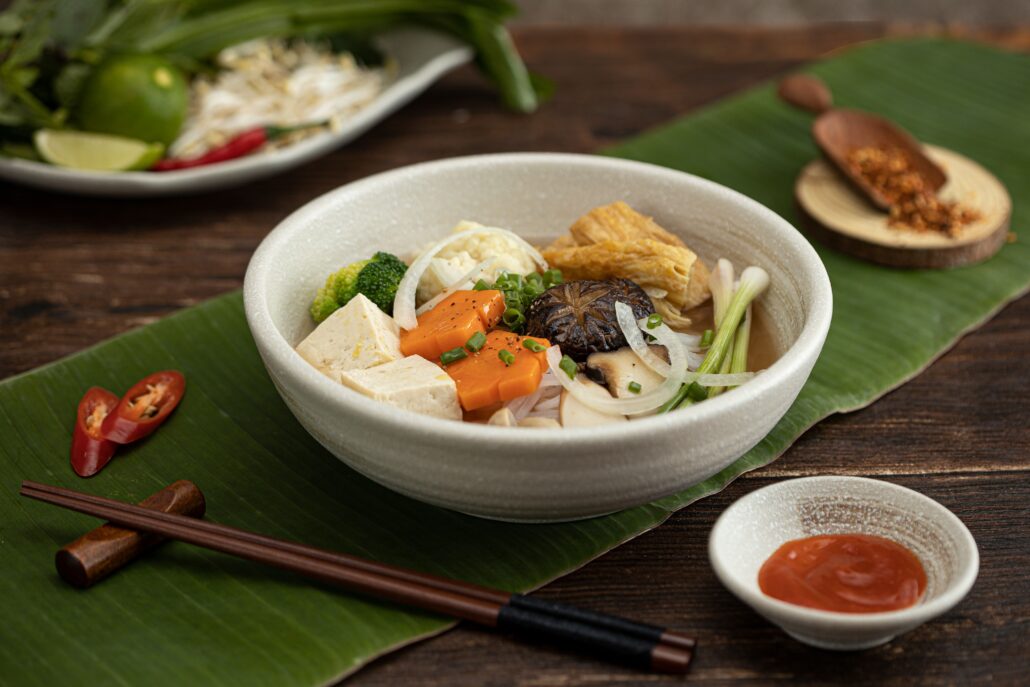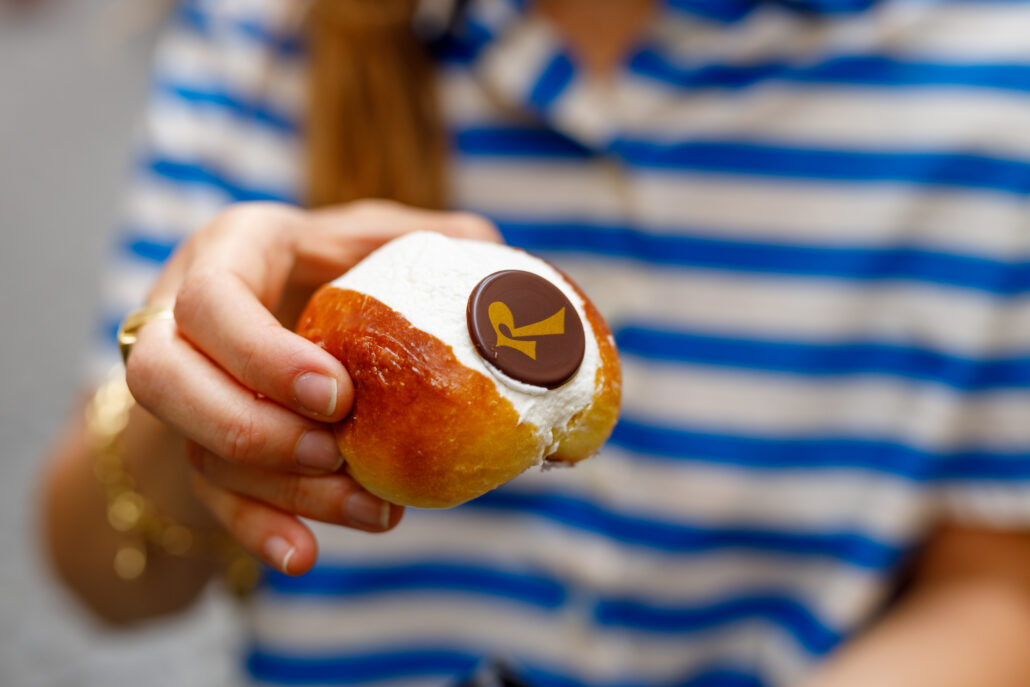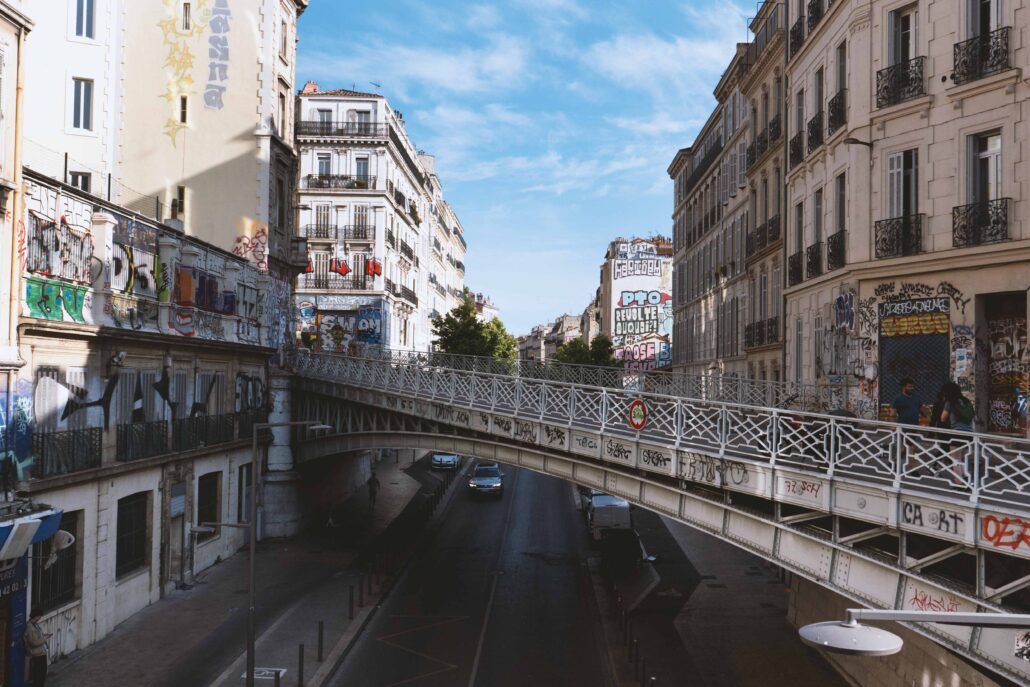In the Algarve I had the privilege of spending a few days with João Rodrigues and his wife Vânia, diving into the heart of their two worlds: Matéria e Residência. Don’t call them just “gastronomic projects”: Matéria – born in 2016 – is a cultural movement, a living network that brings together chefs and small producers, land and sea, traditions and the future. With Residência, João and Vânia travel across Portugal like tireless storytellers: listening to communities, collecting ancestral knowledge and giving a voice back to those who preserve the identity of the land. Each stop of that event turns into a celebration, with guest chefs, tours, visits and – inevitably – dinners that always end too late.
Being part of this experience is a reminder (once again) that food is never just food. It is politics, ecology, memory. Regenerating the soil means regenerating the future; protecting the sea means protecting life itself. A lesson that is both simple and radical: the future of food begins at the source, with those who cultivate, fish, cook and pass on traditions.
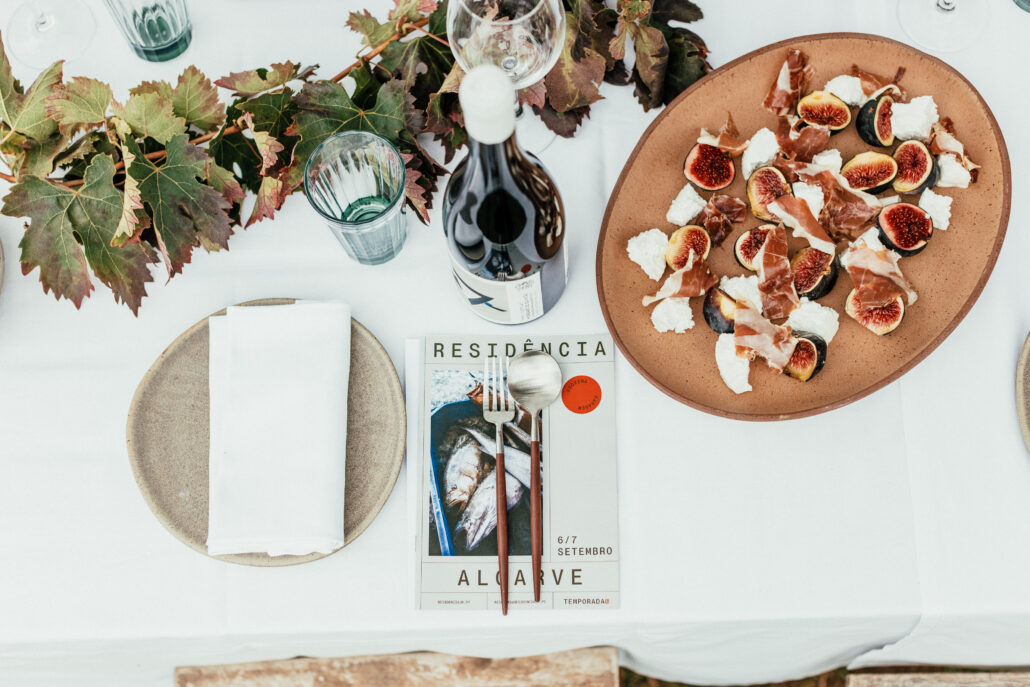
Lisbon, the first stop
Arriving in Lisbon, the first stop had to be Canalha, João’s restaurant, open seven days a week without pause. That alone says a lot. It was an immediate success, bringing back to the city an idea of dining that feels intimate and close to people. The menu is an invitation to share: Iberian ham, clams, prawns, fried partridge empanada, tuna tartare. And then the dishes that stay with you: line-caught squid with sheep’s butter sauce, or Alentejo pork tenderloin with piperade. Canalha tells the story of Portugal as one big extended family, and João has this unique gift of seating everyone at the same table – producers, fishermen, guests and friends – as if it were the most natural thing in the world.
Heading to Sagres: cataplanas and ocean
Time was short: we had to reach Sagres to check into the beautiful Memmo Baleira, (4 stars hotel with a stunning view into the Atlantic Ocean) before heading out right away for a family dinner at A Eira Do Mel, a historic restaurant just steps from the ocean. Here the undisputed queen is the cataplana, more than just a pot: a true symbol of the Algarve. This copper casserole, closing like a seashell, holds fish, seafood (but also rabbit), vegetables and spices, slowly cooking them in their own steam. The result? A fragrant, rich embrace of land and sea that hits you with the very first breath.
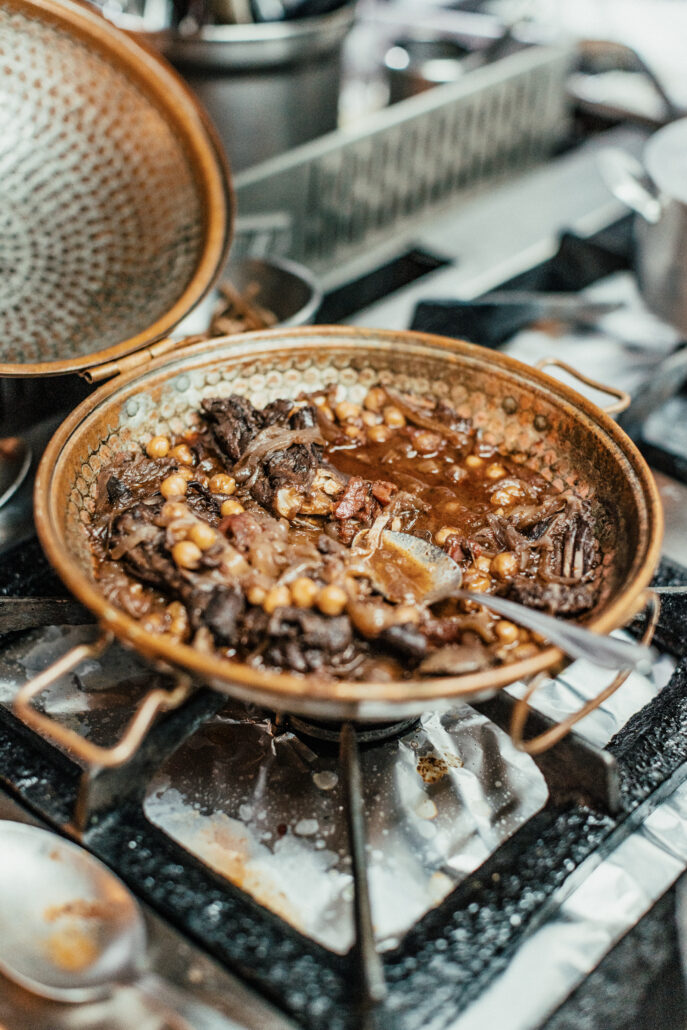
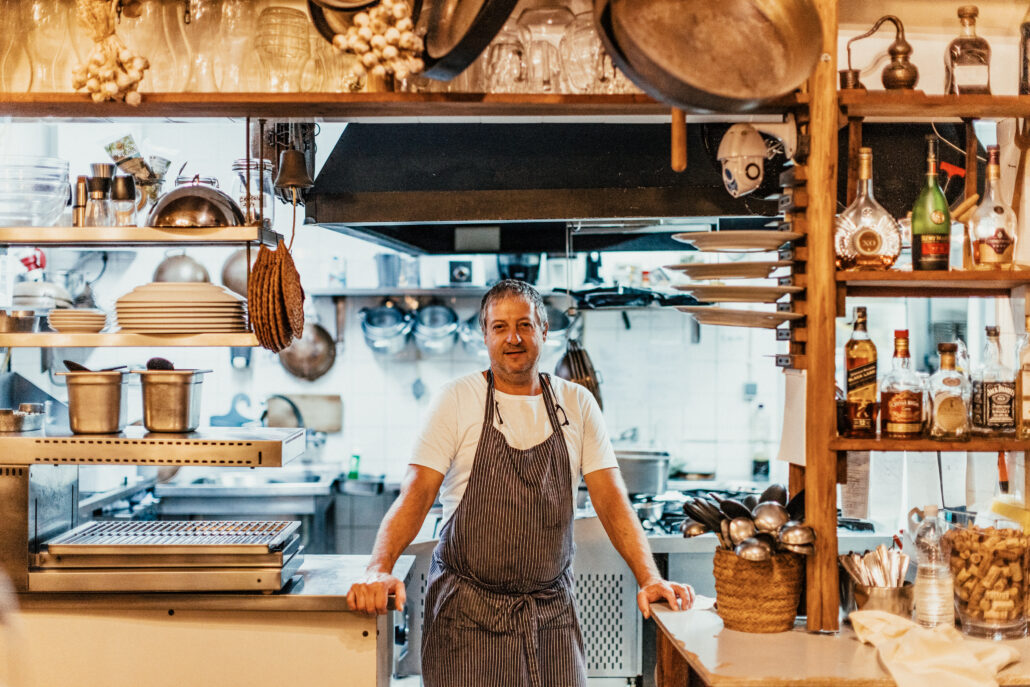
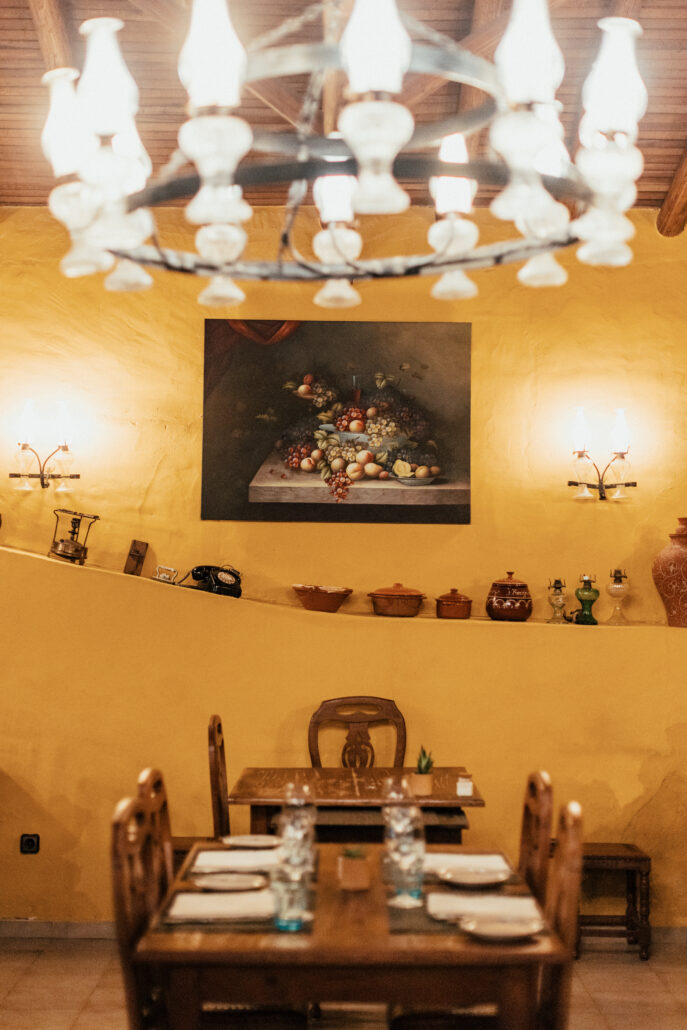
The next morning began with an ocean adventure: the Sea Safari organized by Pedro Bastos, a passionate fisherman and expert of marine life. Pedro took us out into the Atlantic, where we met three boats, each specialized in a different type of local fishing. The ride on the dinghy was anything but calm: high waves, wind in our faces, and us clinging on like castaways in front of the cliffs of Sagres Point and Cape St. Vincent, the legendary “end of the world.” We watched as they caught octopus, moray eels, lobsters and dentex. After a couple of hours with frozen hands and feet (but grins all over our faces when dolphins decided to escort us), we returned to the harbor for a seafood feast at Marina a Vista, before collapsing, happily exhausted, at the Viceroy Ombria Algarve, a spectacular resort surrounded by golf courses.
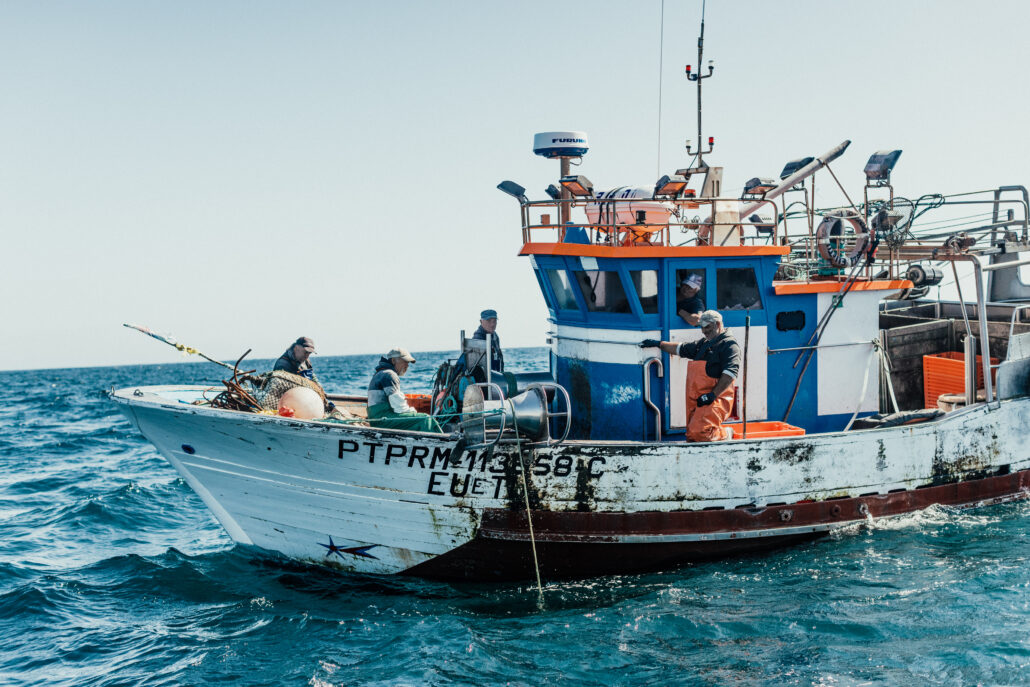
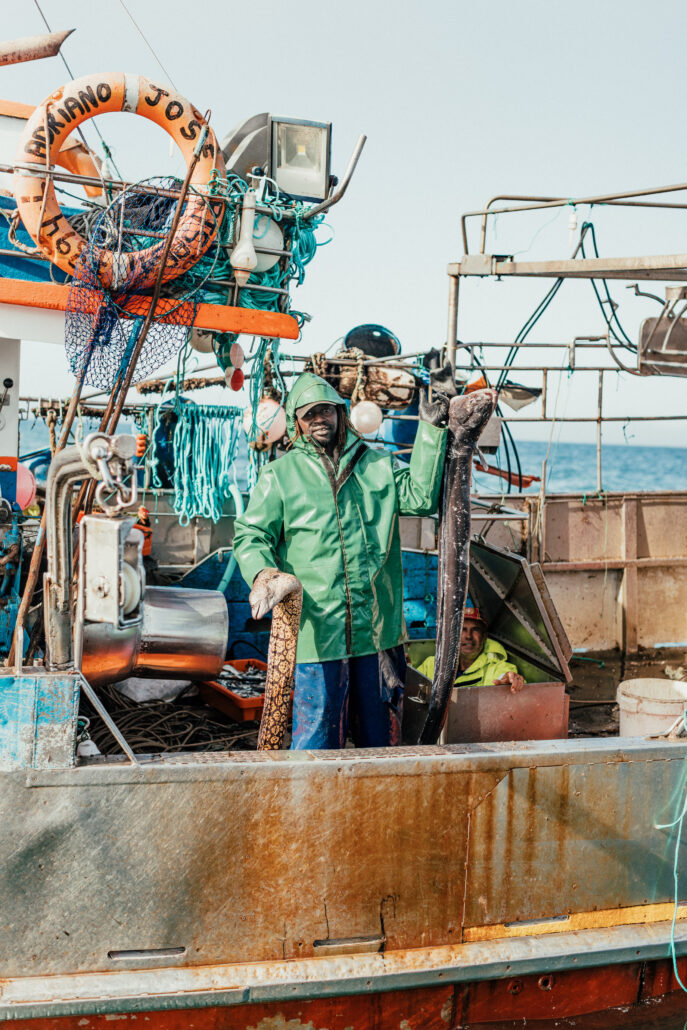
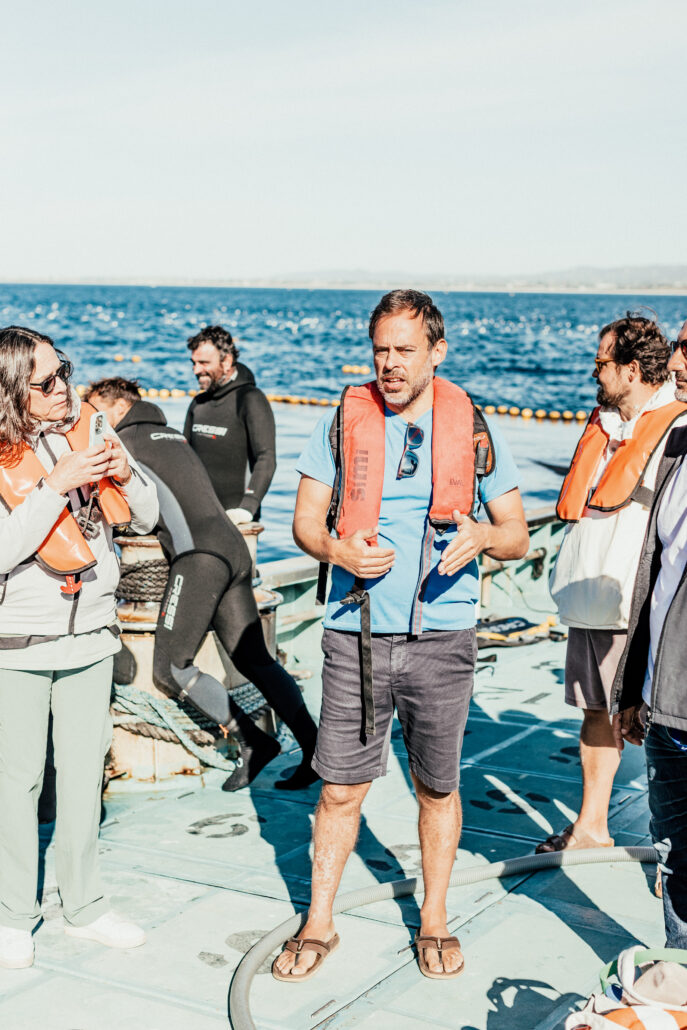
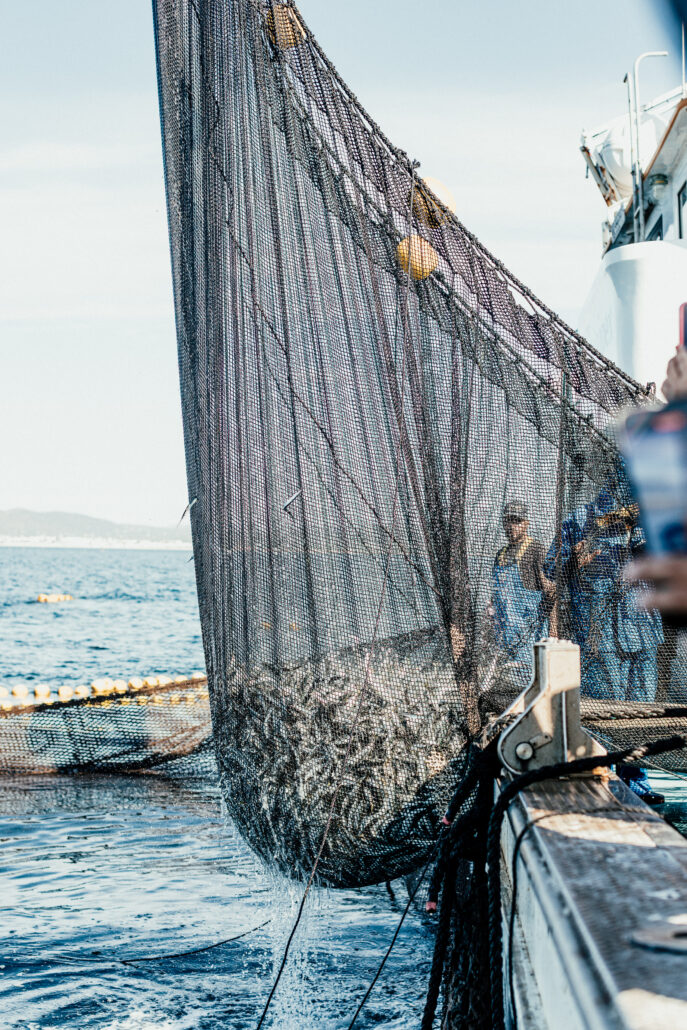
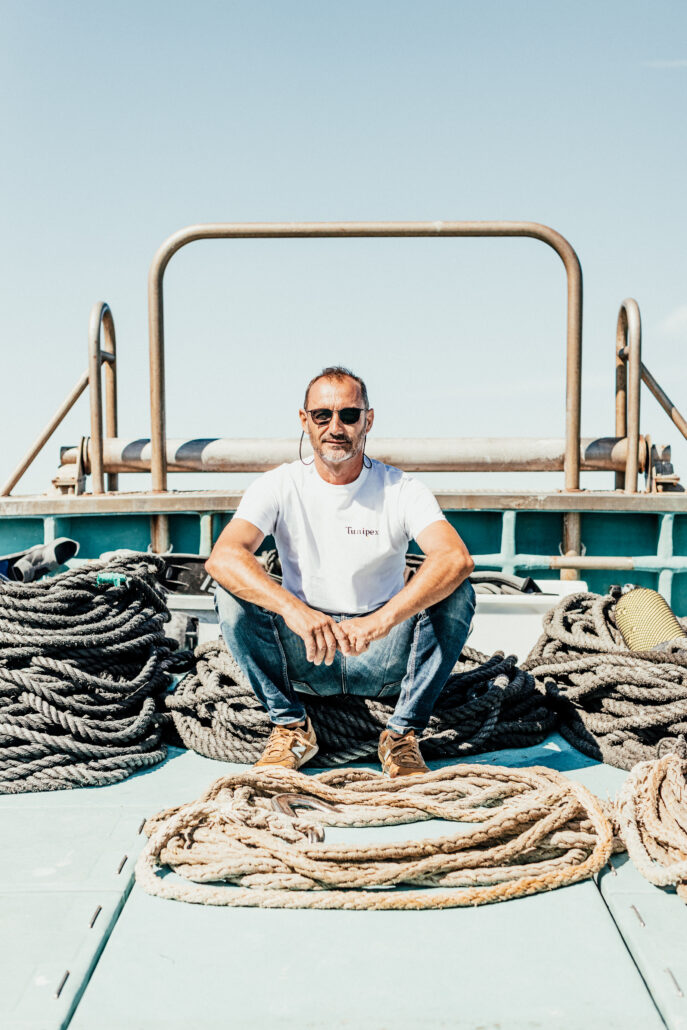
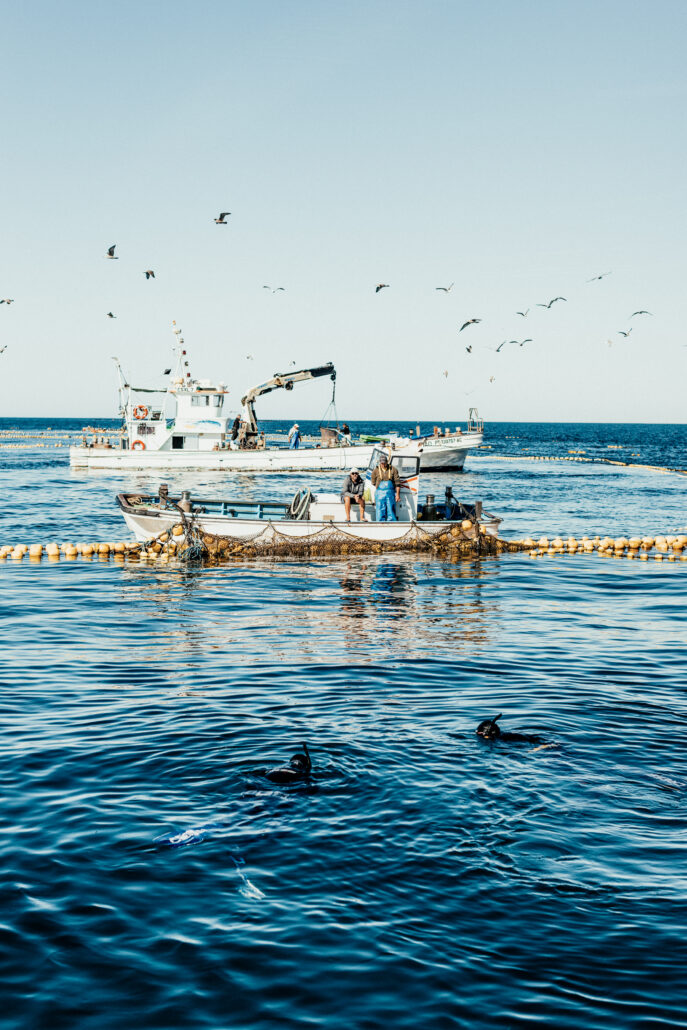
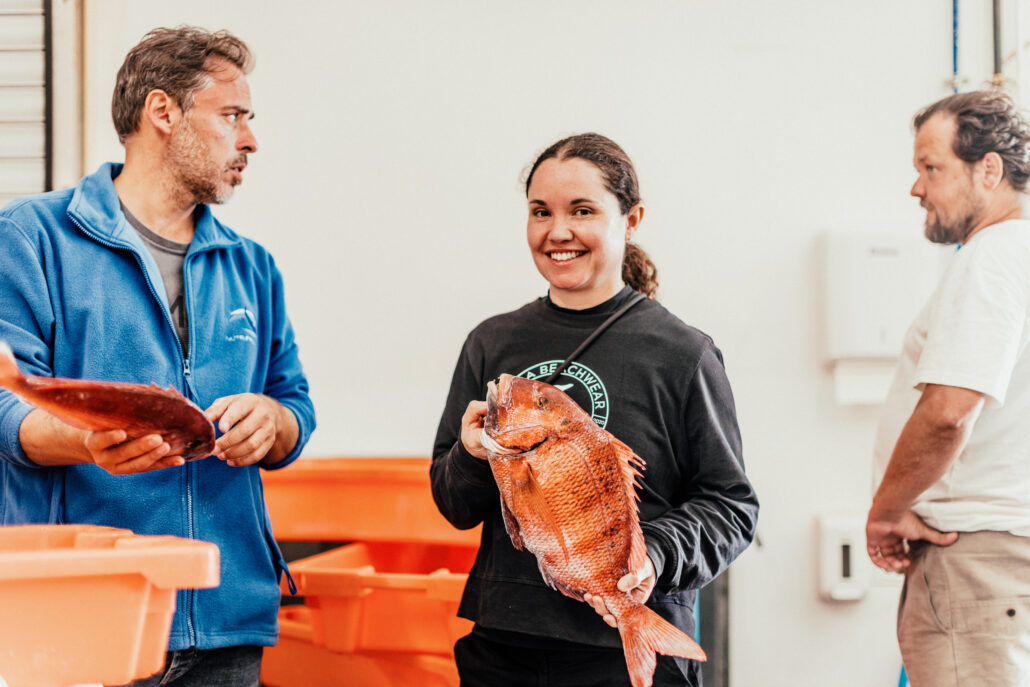
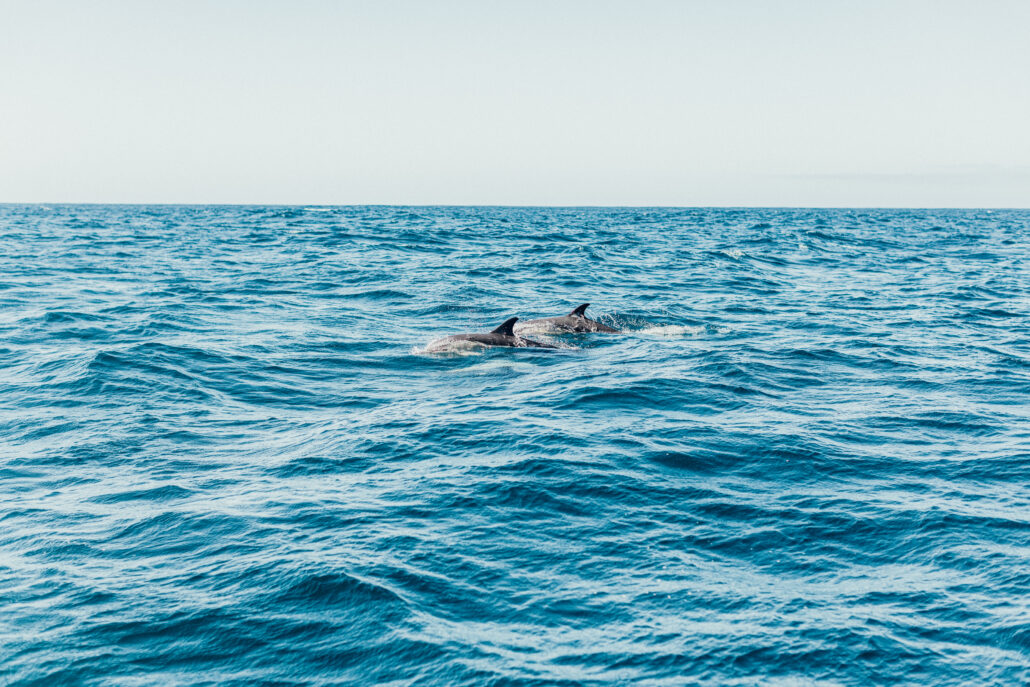
Tuna, seagulls and tradition
The third day was dedicated to yellowfin tuna at the almadraba of Tunipex, guided by the legendary Alfredo Poço, our Portuguese Rais. The history of the armação de atum – the tuna trap – is a deep part of Algarve culture. For centuries it shaped the lives of coastal communities, who during tuna season would move to the arraiais, temporary villages built on the beach. After the decline of the 1970s, the tradition was reborn in the 1990s thanks to a project that combined local know-how and Japanese technology. Alfredo, who travelled to Japan many times to refine his skills, now leads a team of fishermen and divers, ensuring a sustainable, quota-respecting practice.
Highlight of the day: tuna rising to the surface after gorging themselves on sardines tossed in by the bucketful, surrounded by hundreds of screaming seagulls diving like kamikazes. Someone from the group even jumped in, to swim with them (I was more than happy to cheer from the boat).
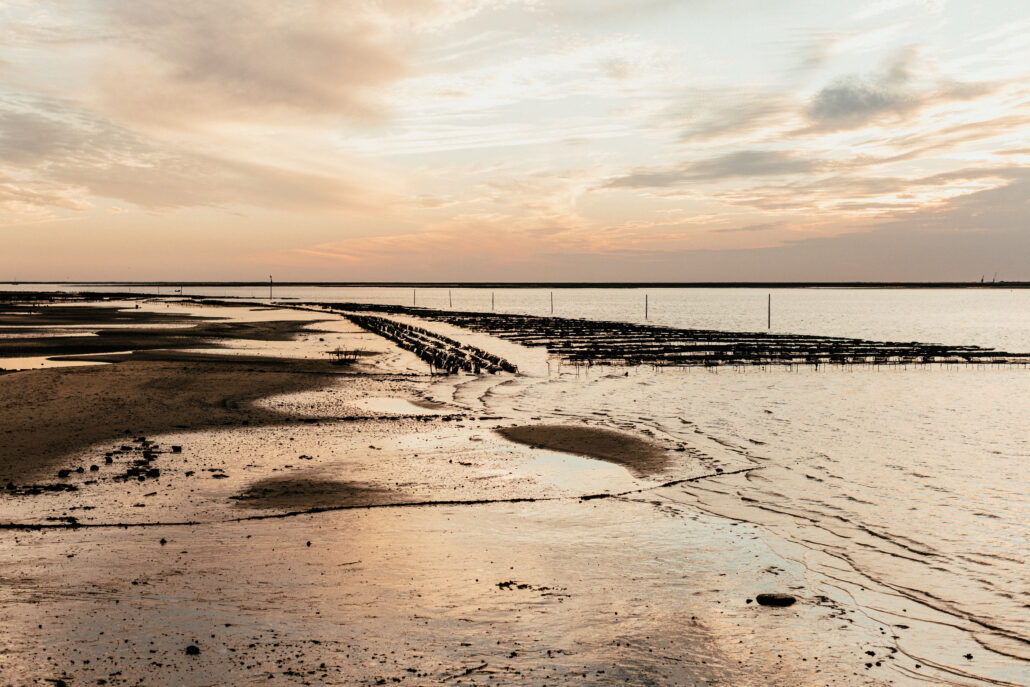
Culatra, the island that resists
And then came Culatra, a strip of sand and whitewashed houses suspended between lagoon and ocean, at the heart of the Ria Formosa. We were welcomed by Silvia Padinha, president of the Associação de Moradores da Ilha da Culatra, founded in 1987 to defend residents’ rights and preserve the island’s cultural identity. Thanks to their work, Culatra resisted real-estate speculation, protecting its unique ecosystem and preventing houses from being sold to non-residents. Today the association also looks to the future: Culatra is part of the European Clean Energy for EU Islands program, working toward an energy transition.
Silvia welcomed us into her home with a feast fit for a wedding: freshly harvested oysters, crab perfectly cooked by João Villain and Ana Bastos (a chef who trained at Heinz Beck’s Pergola in Rome, now back in Algarve working with her brother Pedro at Nutrifresco). One of those moments when you truly understand what “hospitality” means: eating with your hands, laughing until your cheeks hurt, and feeling part of the community, if only for a lunch.
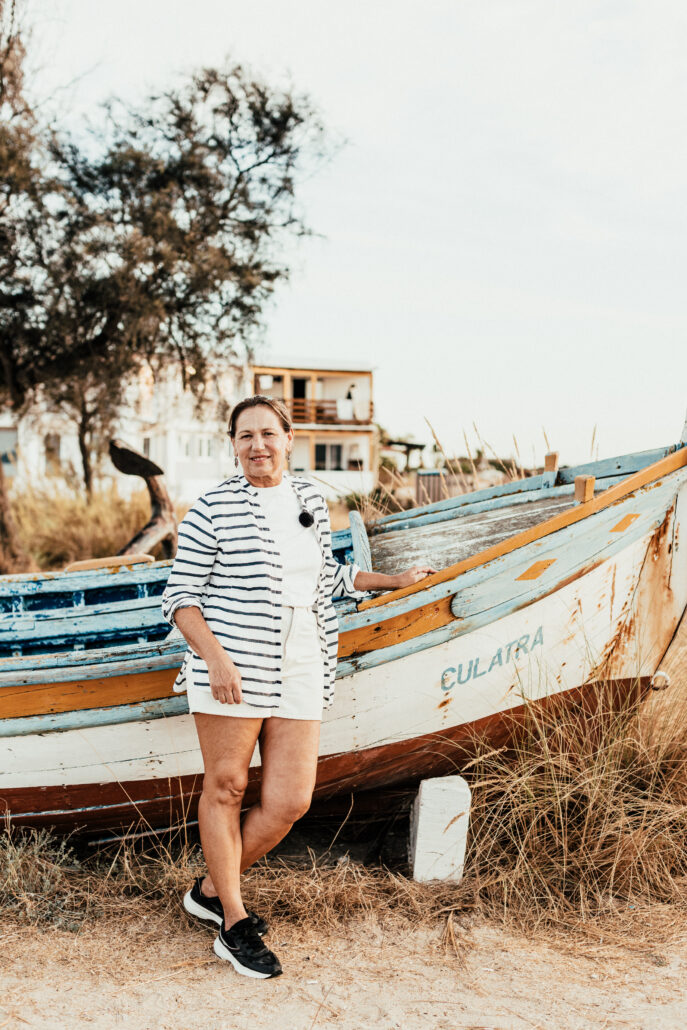
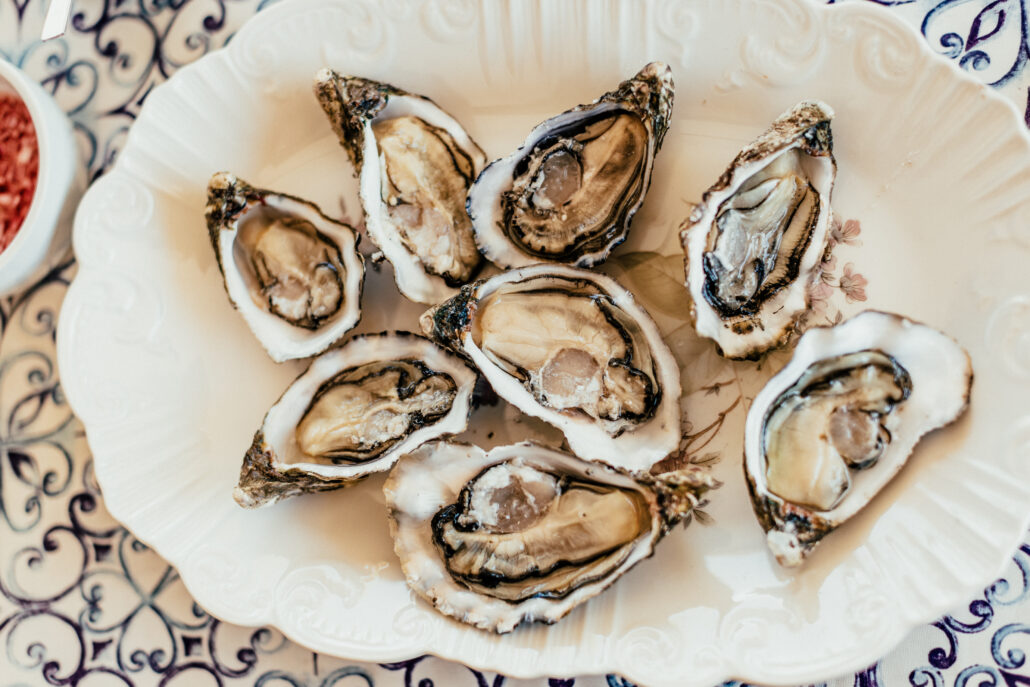
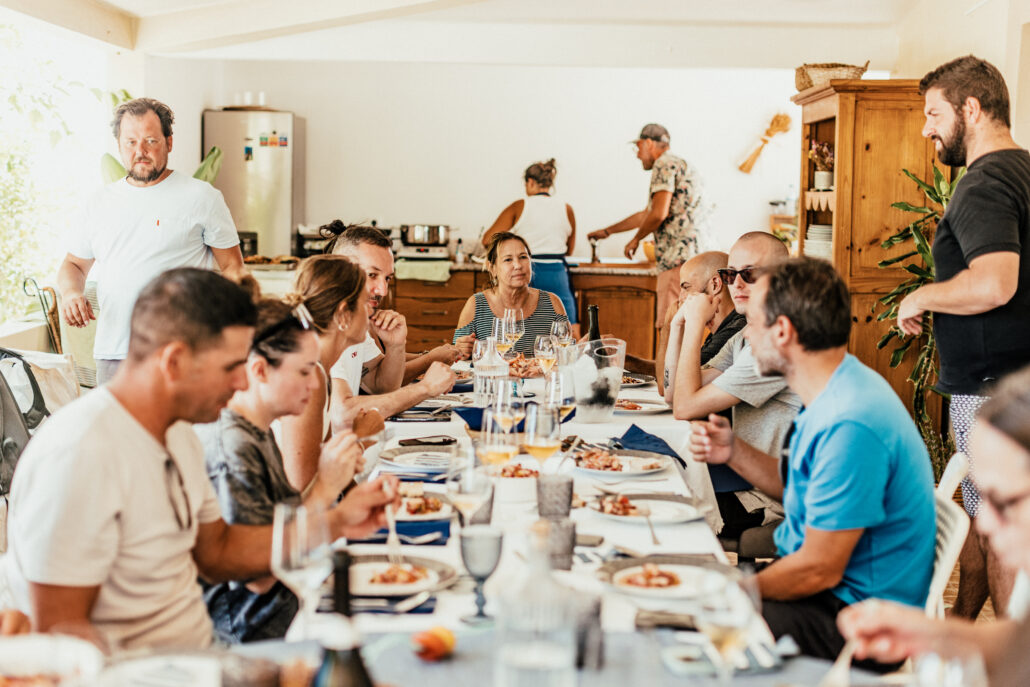
Wine, figs and two Davids
At the Adega Cooperativa Lago we couldn’t help but get emotional: we were the last visitors to taste AlgarSeco, AlgarDoce and AlgarMoscatel before the cooperative shuts down for good. Founded in 1951, today it is falling apart, with empty barrels and collapsed roofs. Ana shared the end of this story with us and gifted us a bottle of 1988 Vinho Licoroso, a “special dry aperitif” that already tastes of nostalgia.
We also met Paulo, a former IT worker who returned to the family business and now grows figs: three varieties, two for drying and one for eating fresh in summer. A return to the roots in every sense.
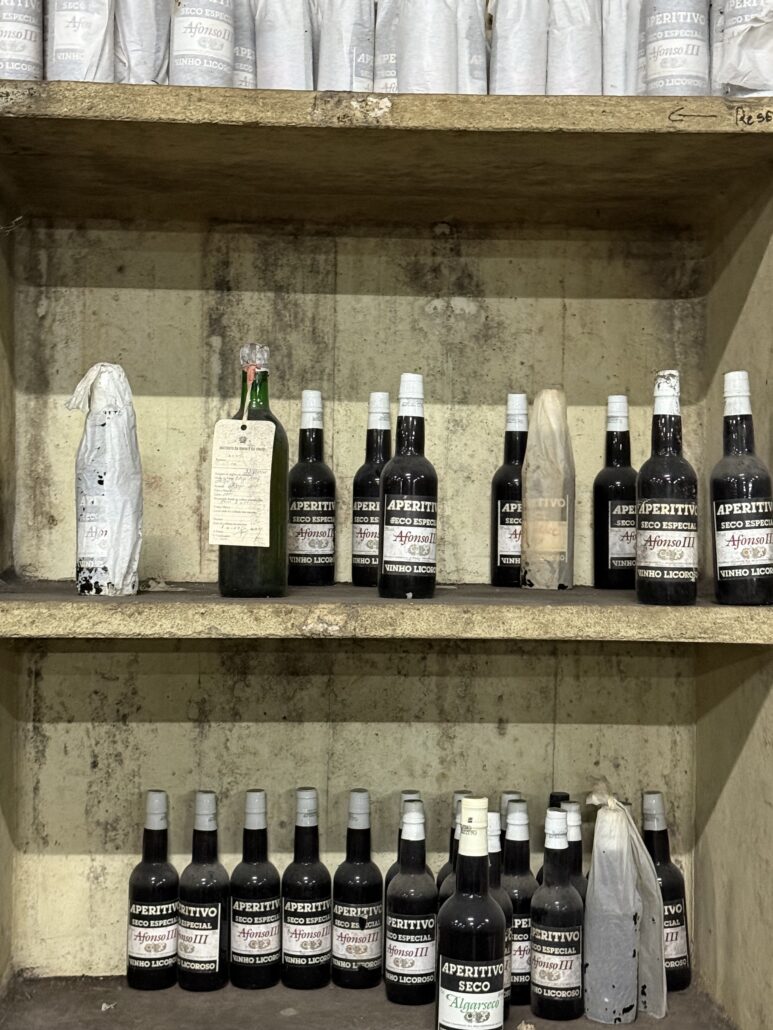
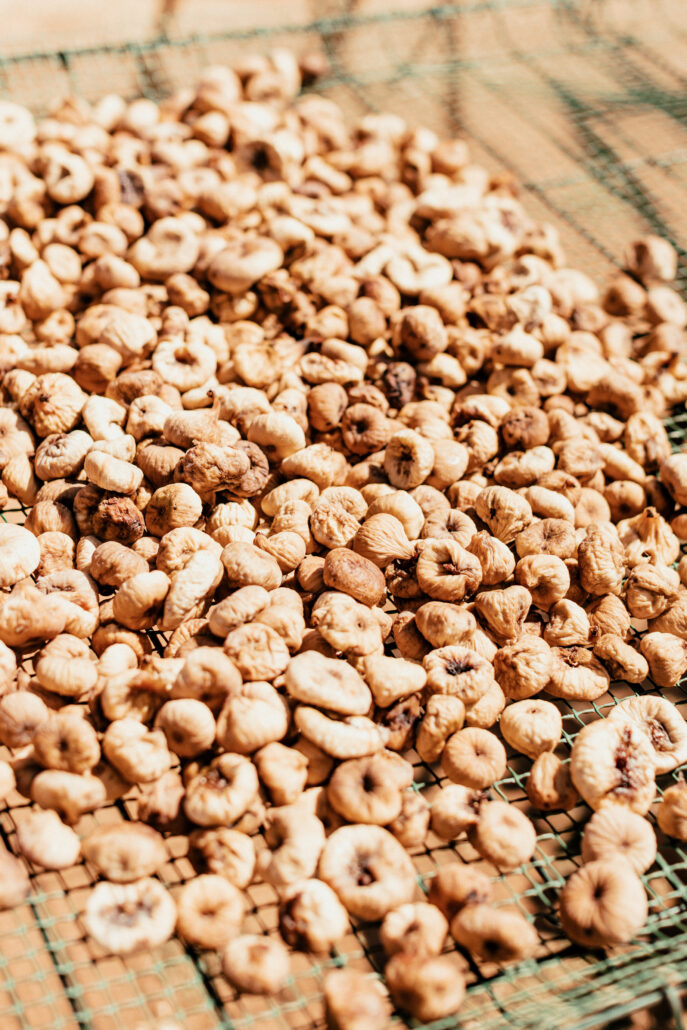
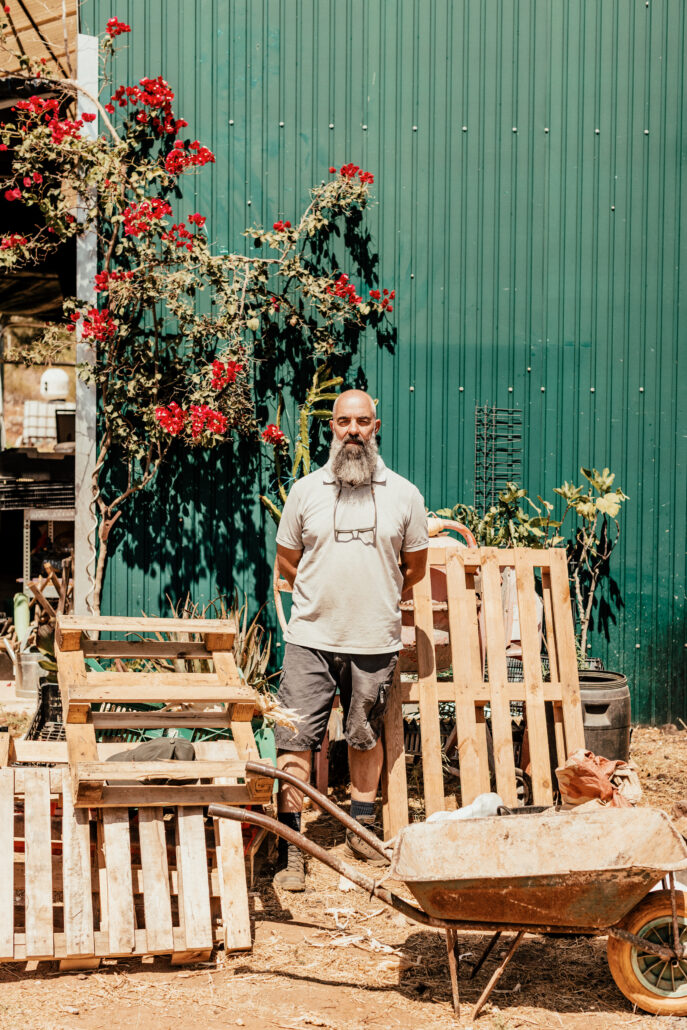
ILunch that day was unforgettable, at Restaurante Rei das Praias, at Praia dos Caneiros, an iconic seafood restaurant opened in 1976, perched above the ocean. Lobster, carabineros, percebes, squid – all impossibly fresh and perfectly cooked. A true feast, followed by a plunge into the Atlantic (icy cold, even more than expected).
That evening, we were welcomed by the “two Davids” at Austa at Almancil. One – David Campus – is the owner, an Englishman settled in Algarve and a passionate wine lover with a carefully curated cellar of natural and biodynamic labels. The other – David Barata – is the chef, Portuguese, once a collaborator of João, deeply connected to the philosophy of Matéria. At Austa, everything breathes of the land: fresh ingredients, preserves, jams, ferments, and an atmosphere that immediately feels like home. Dinner was meticulously curated: crispy Peixe Rei, oysters from the Ria Formosa, red mullet with garden zucchini and codium. Pairings chosen by David elevated each dish without stealing the spotlight.
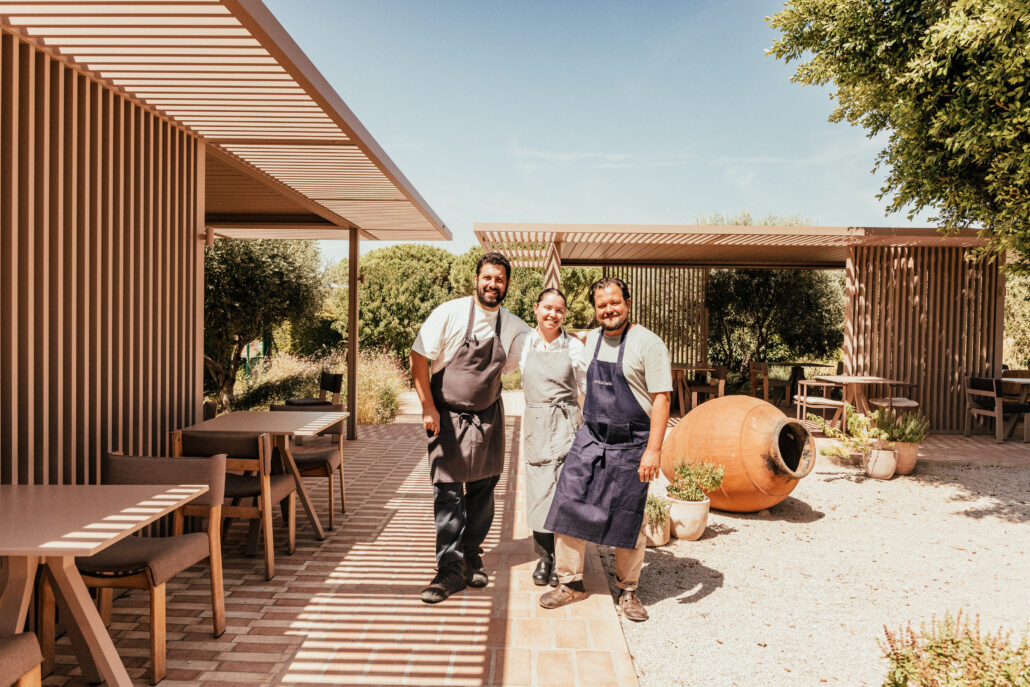
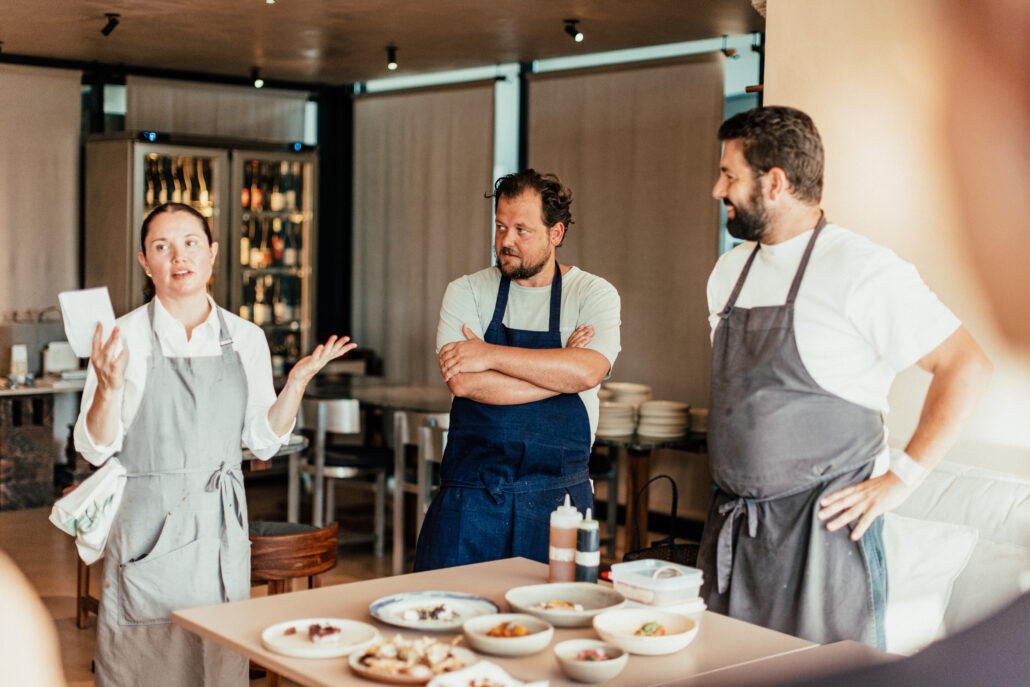
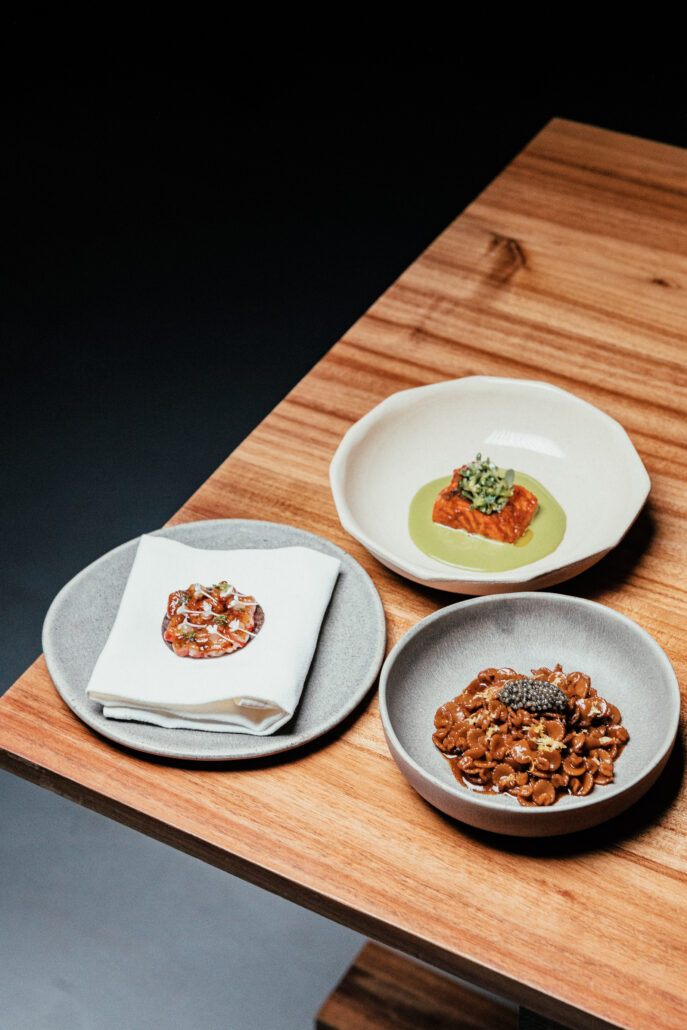
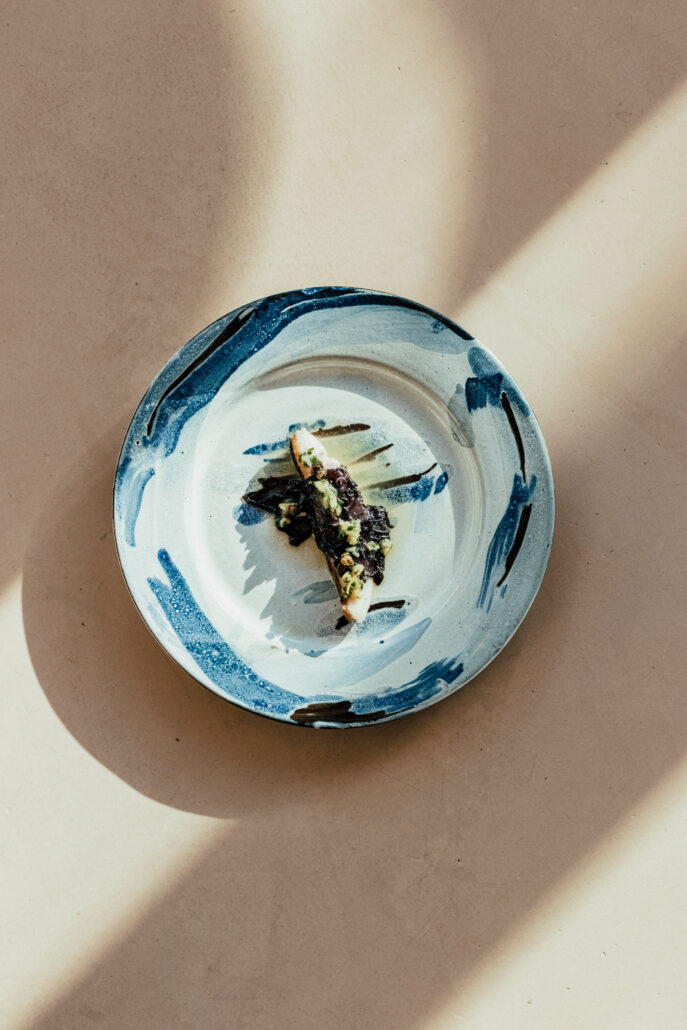
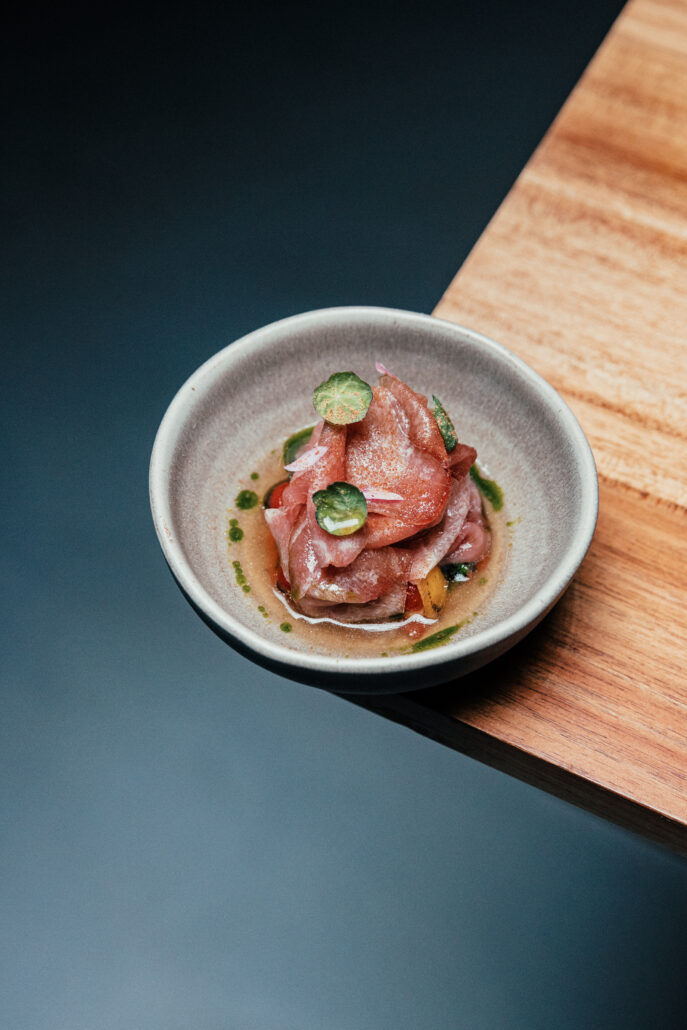
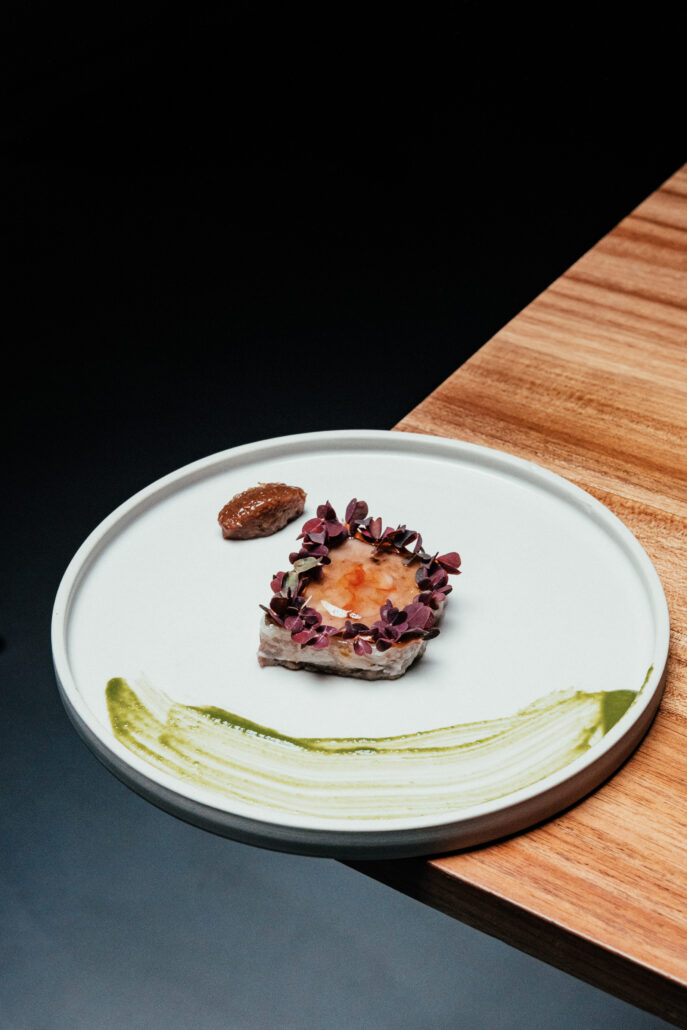
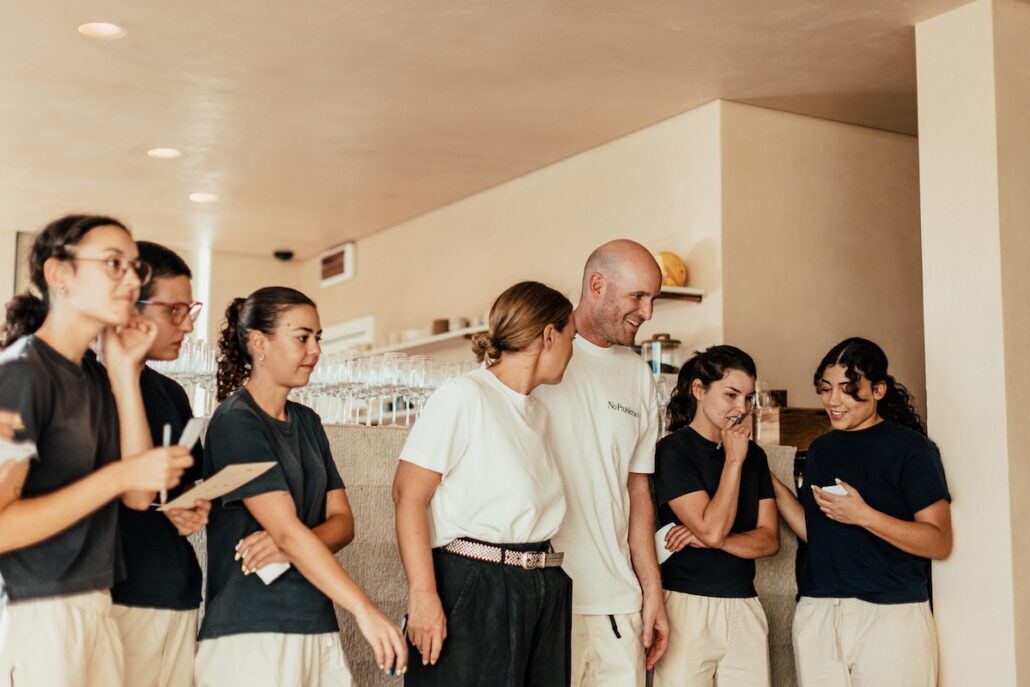
The grand finale: Karime and Noélia
Then came the official dinner, once again at Austa, with guest chef Karime Lopez (chef at Gucci Osteria in Florence), joined by David Barata and João Rodrigues: an apotheosis of flavors and smiles. Karime brought her Mexican roots into the menu: a tostada with carabineros and salsa macha (pesto-style); a mushroom-shaped pasta (almost like a seashell) with an intense sauce of cuttlefish roe and caviar – an explosion of flavors; and John Dory in green sauce with achiote. David and João added dishes like lamb with oyster, pork terrine, cured bluefin tuna with peppers and tomatoes, amberjack in a citrusy meunière sauce, and a dessert of figs, fig leaf and peppermint.
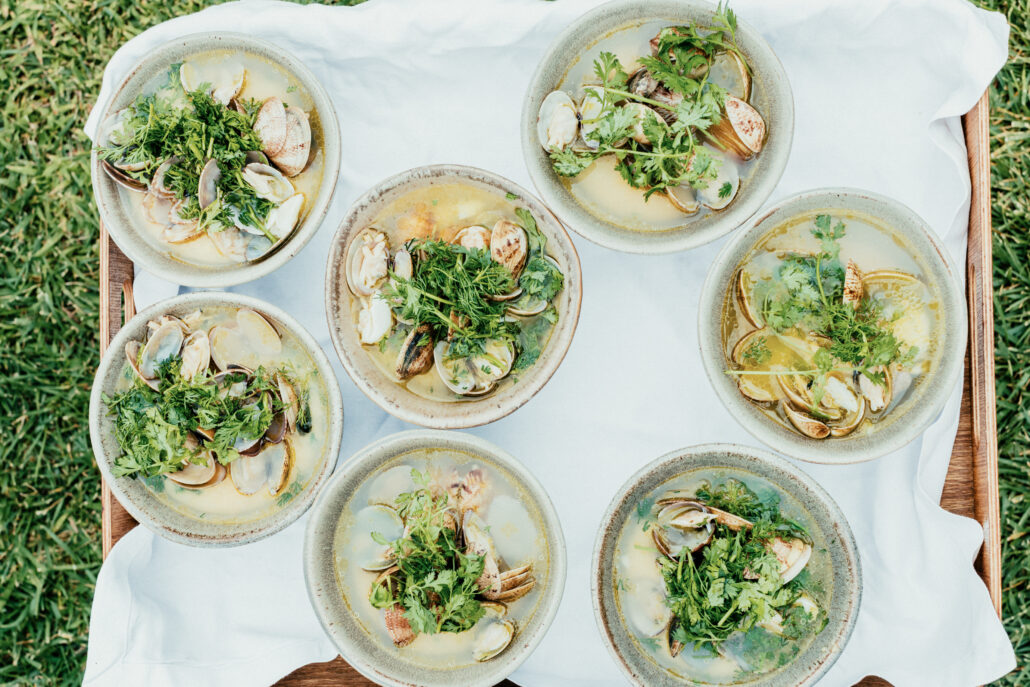
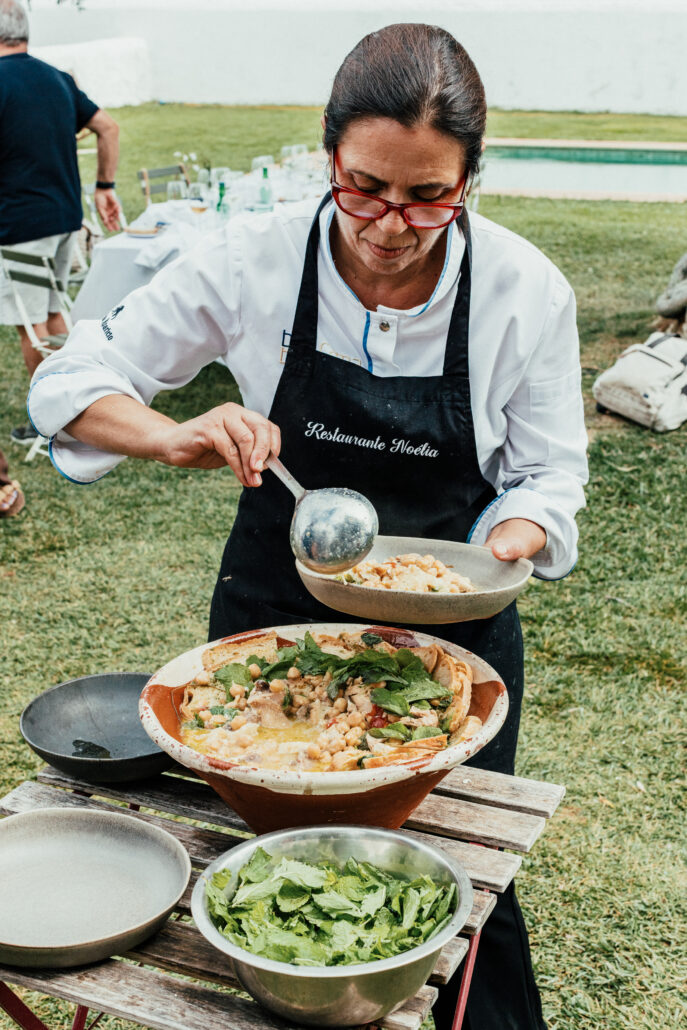
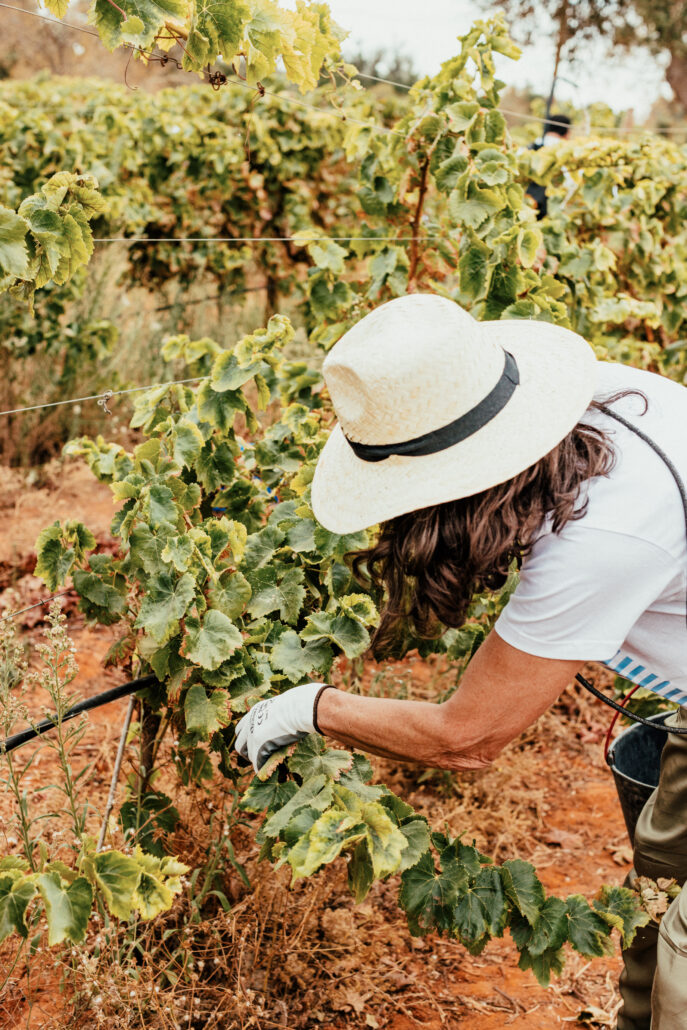
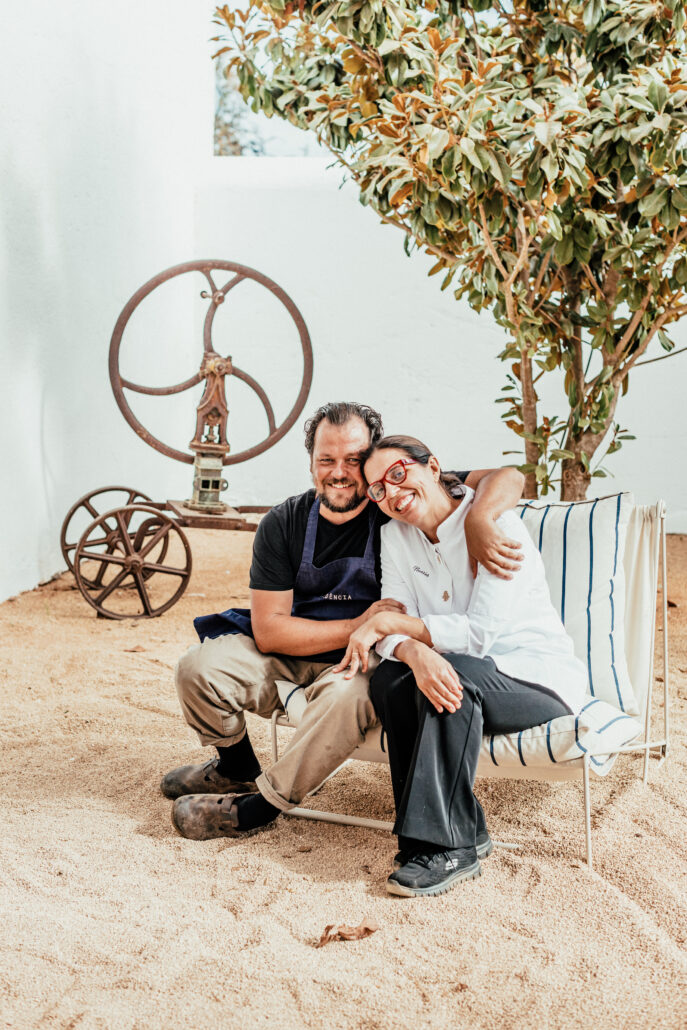
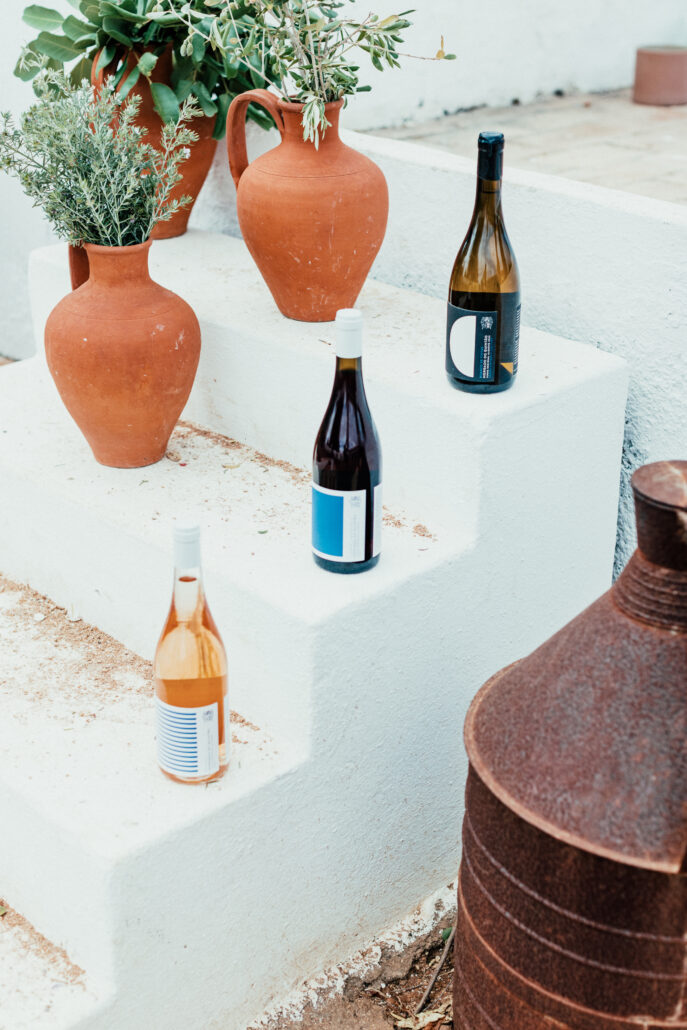
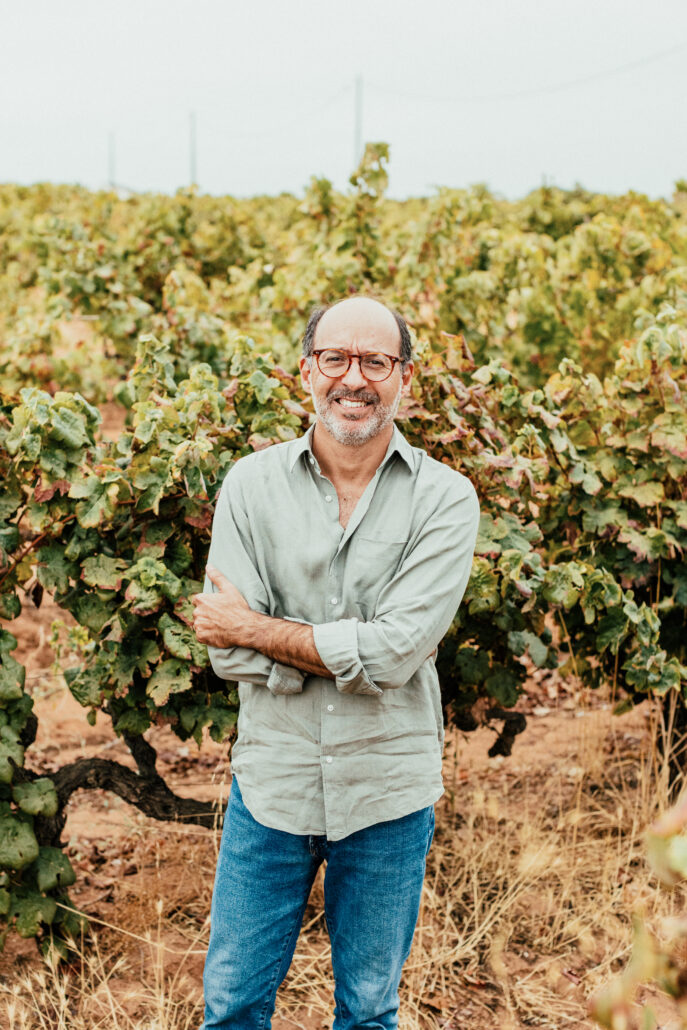
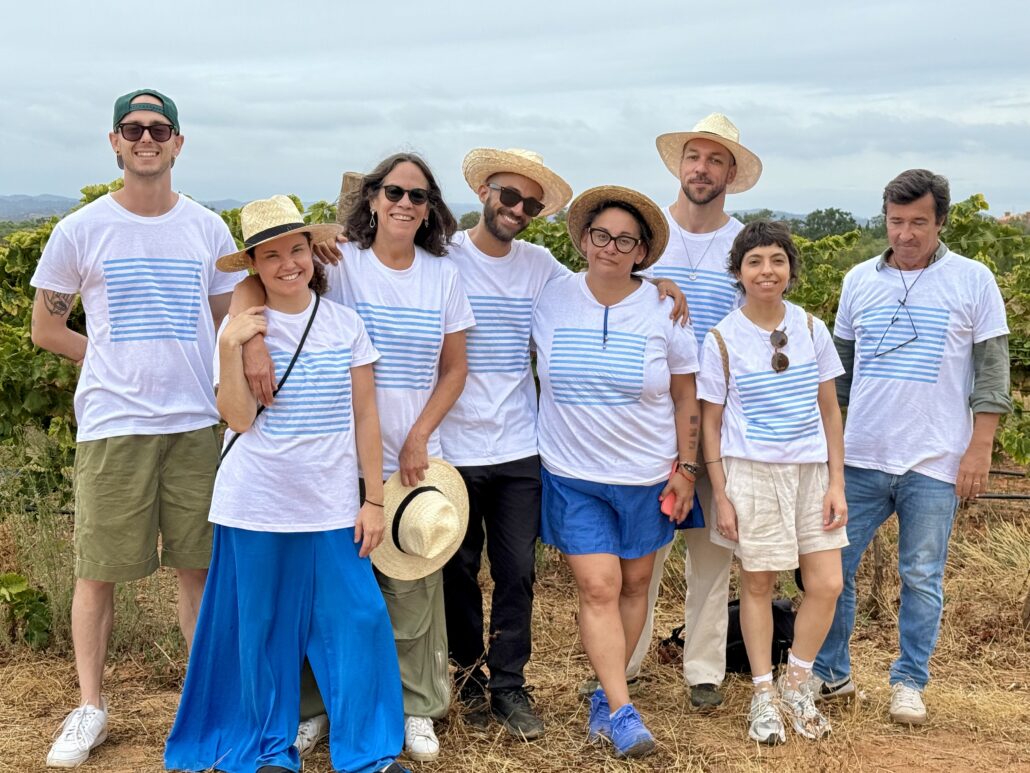
The journey ended at Morgado do Quintão, a magical estate, elegant without ostentation. Among vineyards and a late mini-harvest, we tasted the winery’s bottles – the Palhete (a clarete from Crato branco and Negra Mole), the 2024 white, and the Morgado do Quintão red – before sitting down to lunch beneath a two-thousand-year-old olive tree (yes, really).
The guest of the day was Noélia Jerónimo, chef of the restaurant Noélia in Cabanas de Tavira, just 25 km from the Spanish border. Noélia is a force of nature and practically a national institution in Portugal. Admired and respected by all, she infuses her cooking with a profound message of love and a desire to bring joy to everyone at her table. She is also a strong advocate for women working in the restaurant industry. Her dishes need no frills: they are pure taste, rooted in Portuguese tradition – from Xerém de ameijoas, a clam-based porridge eaten by the spoonful, to Açorda de galinha with chickpeas, a comforting bread-based delicacy.
João and Noélia closed this incredible journey through a hidden yet essential Algarve. And when it was time to leave, the feeling was clear: trips may end, but certain encounters remain etched in memory forever.
